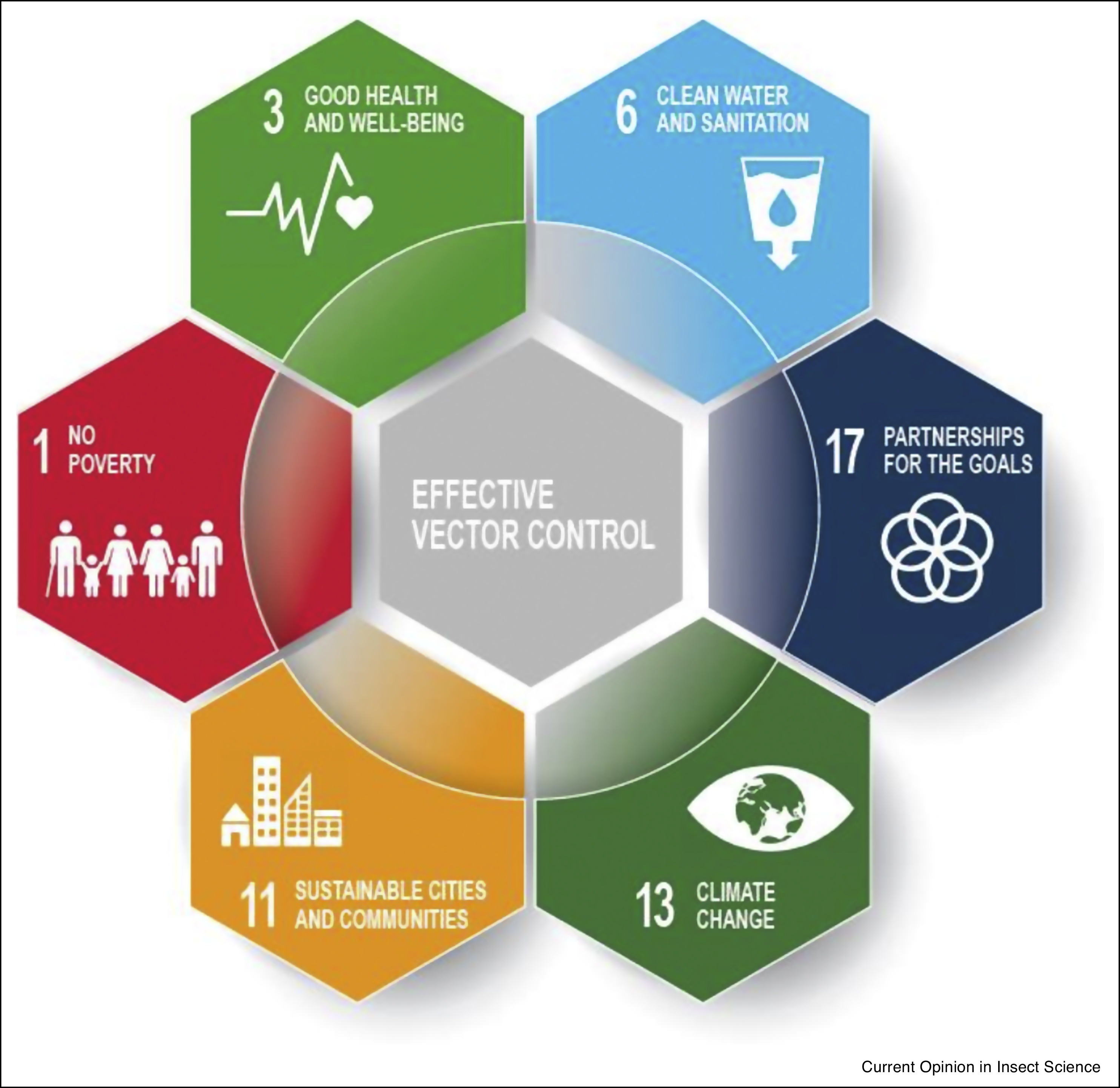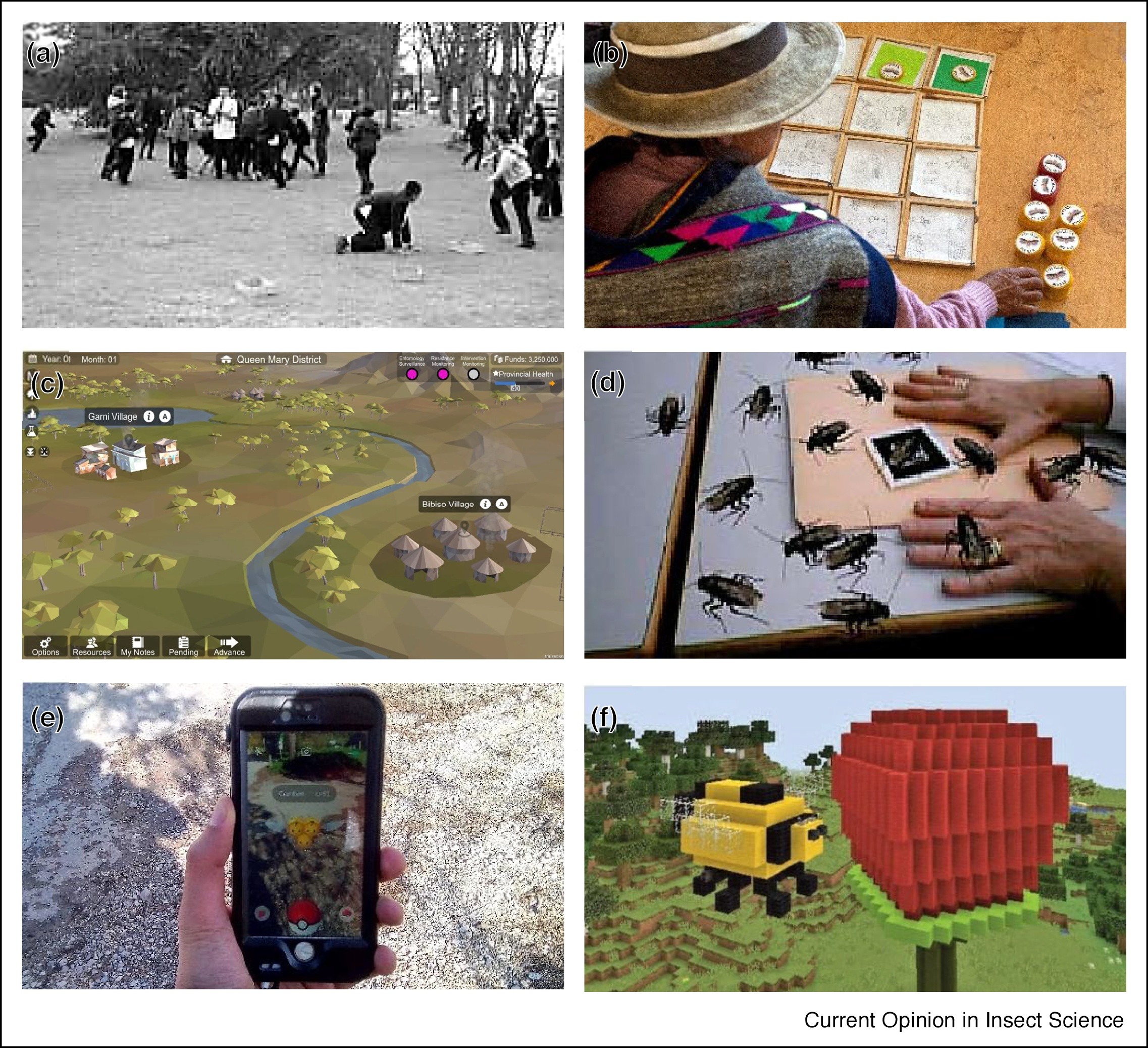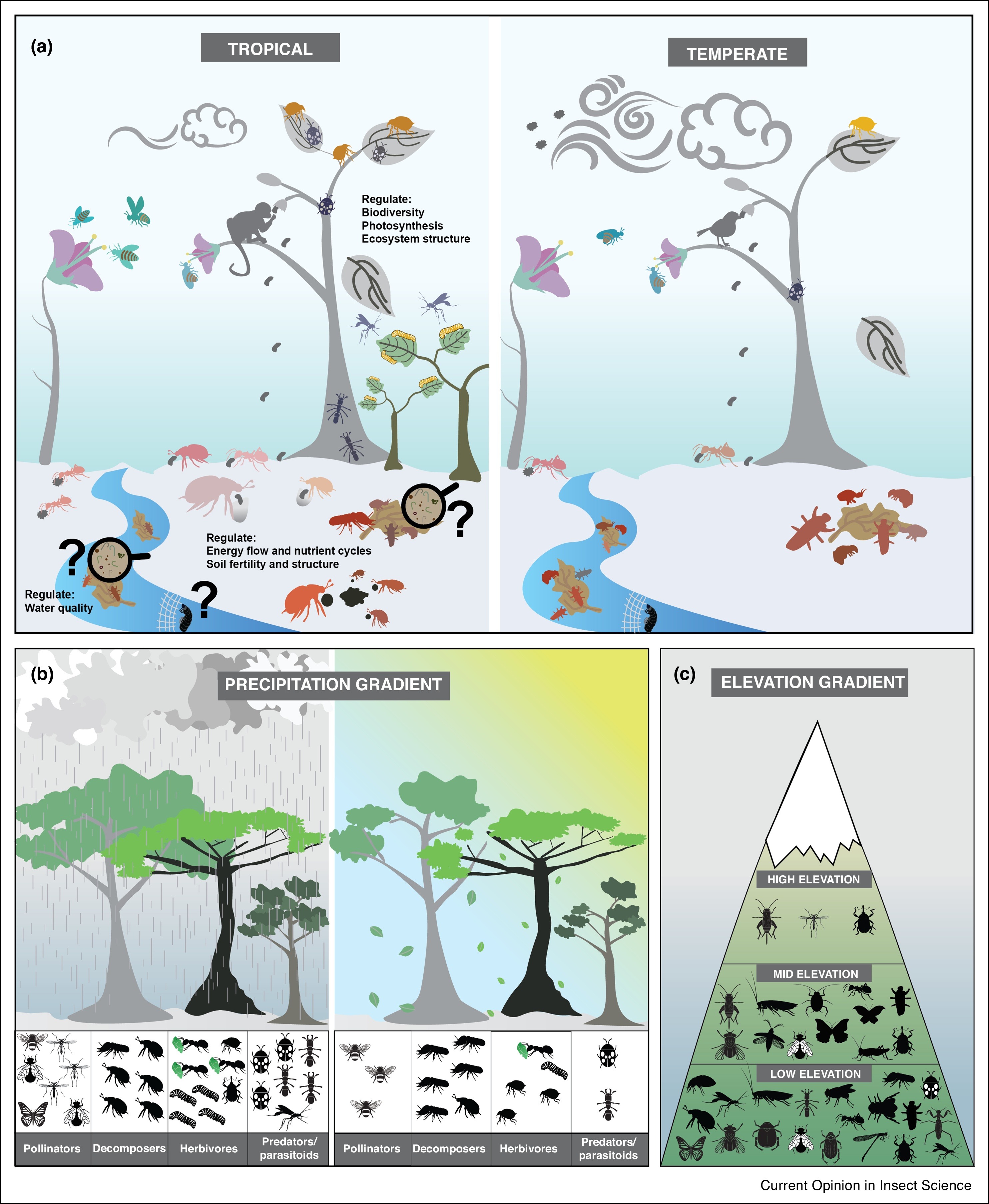Viral diseases transmitted by mosquitoes, known as arboviruses, pose a significant threat to human life and are a major burden on many health systems around the world. Currently, arbovirus control strategies rely on insecticides or vector source reduction and, in the absence of effective, accessible and affordable vaccines, mainly on symptomatic based, non-specific treatments. However, insecticides have the potential to interfere with non-target organisms, cause environmental toxicity and insecticide resistance reduces their effectiveness as a sustainable control method.
Insects have a significant role towards achieving sustainable development, but the decline of insect knowledge outreach efforts is dampening their impact. Revisiting the perspective and approach to entomological literacy is required to respond to the evolving human needs for sustainable living in light of the decline of insect biomass and biodiversity, and entomology. This is also an opportunity to reflect on the interests about insects in the age of video games.
Background: Plant-based meat alternatives are developed to address consumer demands and sustainability of future food supply, and the market has grown exponentially in recent years. Although progresses have been made to construct plant protein-based fibers organoleptically comparable to a whole-muscle cut, it remains challenging to reproduce the hierarchical organization of muscle tissue known to contribute to the overall sensory profile. For now, the market strategies are largely focused on restructured or formed meat mimeticks.
Sexual violence is a universal phenomenon without restriction to sex, age, ethnicity or social class that causes devastating effects in the physical and mental health spheres, in the short-term and long-term, such as pregnancy, sexually transmitted infections (STI) and greater susceptibility to psychiatric symptoms, especially depression. Some cases of sexual assault and rape are based on the use of so-called drug-facilitated sexual assault (DFSA), which cause victims’ loss of consciousness and inability to defend, making them vulnerable to violence.
Introduction: This study investigates staff's perspectives on the characteristics required to work in a sexual assault referral centre and the support and training they believe sexual assault referral centres should provide to minimise the negative impacts of the work and provide a supportive working environment. Methods: Semi- structured interviews were conducted with 12 staff, and a focus group was held with a further four staff of a sexual assault referral centre. The data were examined using thematic analysis.
Background: Self-harm is a leading cause of morbidity in prisoners. Although a wide range of risk factors for self-harm in prisoners has been identified, the strength and consistency of effect sizes is uncertain. We aimed to synthesise evidence and assess the risk factors associated with self-harm inside prison.
Passengers who require special assistance at airports and on aircraft represent one of the fastest growing demographics for aviation worldwide. At some airports, annual growth in PRM (persons with reduced mobility) traffic is six times greater than the overall rate of passenger growth yet barriers to accessible air travel remain and disabled passengers continue to exhibit a lower propensity to fly than other travellers.
Tropical insects are astonishingly diverse and abundant yet receive only marginal scientific attention. In natural tropical settings, insects are involved in regulating and supporting ecosystem services including seed dispersal, pollination, organic matter decomposition, nutrient cycling, herbivory, food webs and water quality, which in turn help fulfill UN Sustainable Development Goals (SDGs). Current and future global changes that affect insect diversity and distribution could disrupt key ecosystem services and impose important threats on ecosystems and human well-being.




